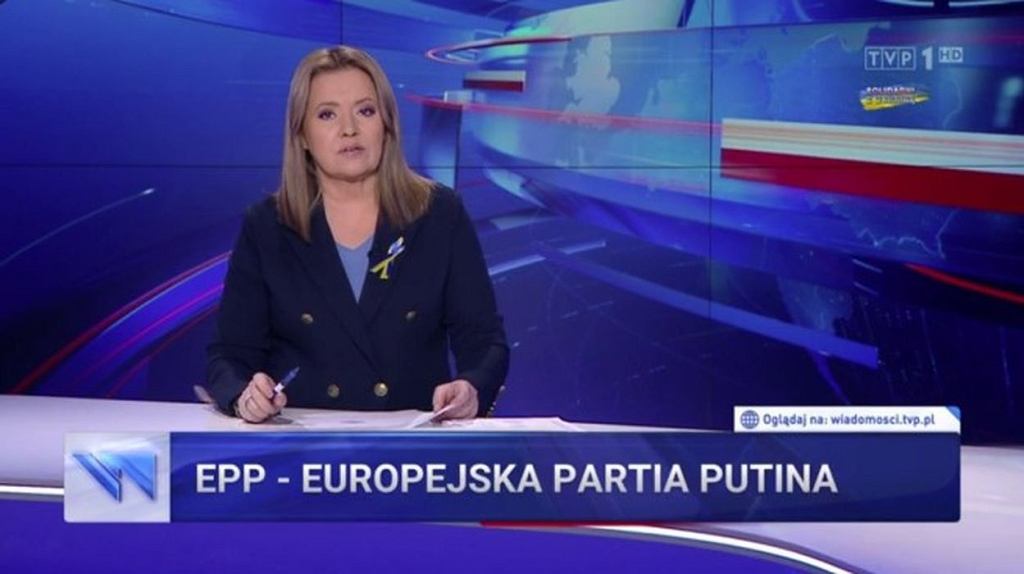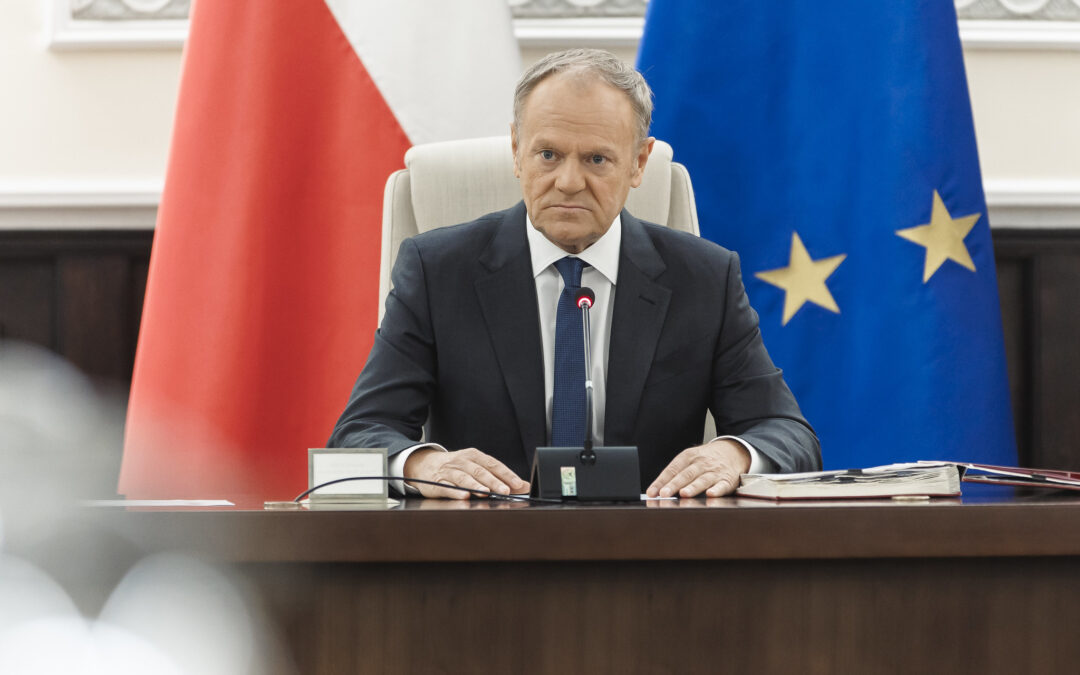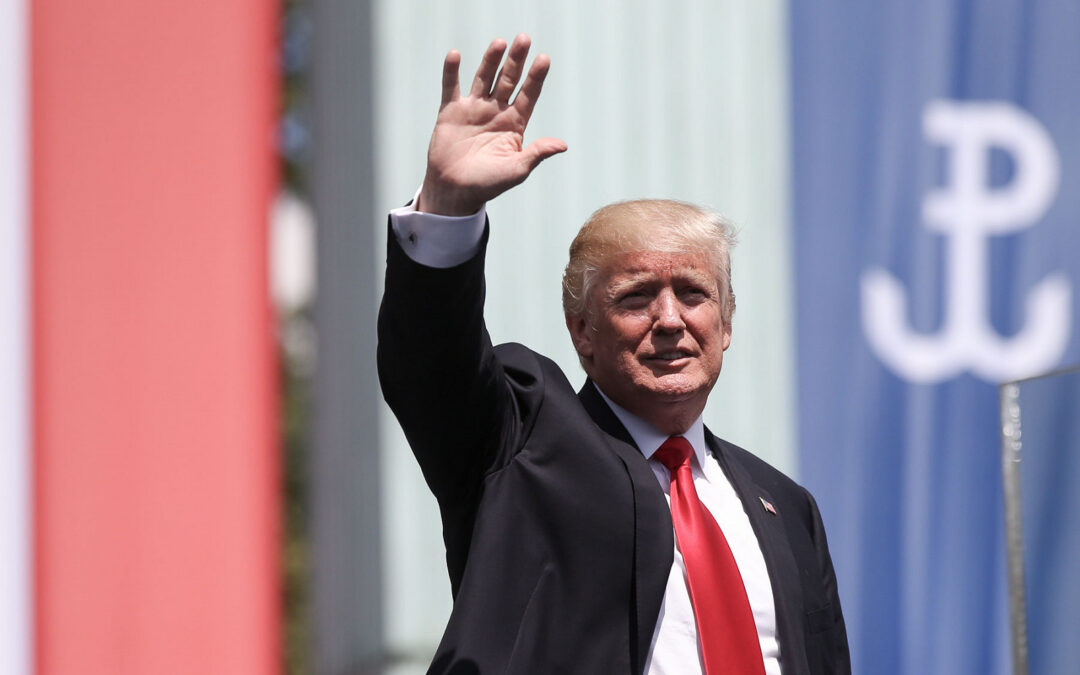Three members of the council that oversees Polish public broadcaster TVP have issued a formal complaint against the station over its criticism of the main opposition party and its leader Donald Tusk during news programmes, saying that this violates Poland’s broadcasting law.
TVP is under the influence of the ruling national-conservative Law and Justice (PiS) party. Its CEO since 2016, Jacek Kurski, is a former member of the PiS government. The station’s news broadcasts are regularly used to praise the government and attack its opponents, with Tusk a particular target.
Those attacks have continued during the war in Ukraine, with TVP using its news reports to suggest that Tusk, the Civic Platform (PO) party that he leads in Poland, and the European People’s Party (EPP) that he is president of are among Putin’s “useful idiots”, as one recent TVP headline put it.
In a segment titled "Useful idiots bred Putin", Polish state TV news played a clip purporting to show how Tusk and Putin had failed to clap after a speech by Lech Kaczyński
In fact, the full video shows both did clap and TVP manipulatively edited the clip https://t.co/KFar2Q4hyg
— Daniel Tilles (@danieltilles1) March 19, 2022
In another news segment two weeks ago, TVP’s headline suggested that EPP actually stands for “European Putin’s Party”. It criticised Tusk and PO for maintaining a “pro-Russian line” when in power.
It also accused them of not allowing a proper investigation of the Smolensk plane crash in Russia that killed then President Lech Kaczyński, founder of PiS and the twin brother of current PiS chairman Jarosław Kaczyński.
That position was contrasted to the longstanding anti-Russian position of PiS and its strong support for Ukraine during the current crisis. TVP did not mention that Tusk and PO have also offered support to Kyiv and condemned Russia’s actions.
Since @donaldtusk's return as opposition leader, Polish state TV – a government mouthpiece – has broadcast negative coverage of him almost every day, a study has found.
Headlines included: "Tusk's campaign of lies" and "Tusk’s return pleases the Germans" https://t.co/4DhObmSwVQ
— Notes from Poland 🇵🇱 (@notesfrompoland) August 10, 2021
In response to the latter report, three members of TVP’s programme council have submitted a complaint to the head of the National Broadcasting Council (KRRiT), Poland’s broadcasting regulator.
They say that TVP’s “propaganda material” breaches Poland’s broadcasting law by “disseminating content that violates the Polish national interest and fails to comply with the principles of honesty”, reports Press magazine.
Such programming “is conducive to breaking the unity of the European community”, say the complainants. They also note that the party of Kyiv’s mayor, Vitali Klitschko, is an observer member of the EPP. Klitschko earlier this month thanked Tusk and PO for their support during the war.
The three complainants are Janusz Daszczyński, who served as CEO of TVP from 2015 to 2016 (and was nominated to TVP’s programme council by PO); Iwona Śledzińska-Katarasińska, who is a PO MP; and Krzysztof Luft, a former PO parliamentary candidate.
While public broadcasters in Poland have always been under the influence of whichever parties are in power, a number of media watchdogs and commentators have noted that the current politicisation of state TV is unprecedented in the post-communist era, and in violation of public media’s statutory obligation to be neutral.
Reporters Without Borders (RSF) calls TVP a “government propaganda mouthpiece”. Under PiS’s rule, Poland has fallen from its highest ever position of 18th in RSF’s annual World Press Freedom Index to its lowest ever position of 64th last year.
The government and its supporters, however, argue that changes at public broadcasters are part of a necessary rebalancing of Poland’s media landscape, which they claim was previously dominated by opposition-supporting outlets, some of which have foreign ownership.

Daniel Tilles is editor-in-chief of Notes from Poland. He has written on Polish affairs for a wide range of publications, including Foreign Policy, POLITICO Europe, EUobserver and Dziennik Gazeta Prawna.




















